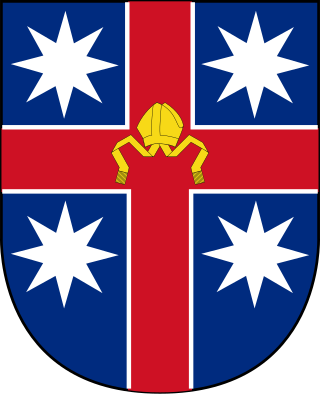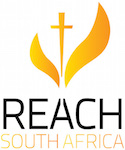Related Research Articles

The Church of Ireland is a Christian church in Ireland, and an autonomous province of the Anglican Communion. It is organised on an all-Ireland basis and is the second-largest Christian church on the island after the Roman Catholic Church. Like other Anglican churches, it has retained elements of pre-Reformation practice, notably its episcopal polity, while rejecting the primacy of the pope.
Since the 1990s, the Anglican Communion has struggled with controversy regarding homosexuality in the church. In 1998, the 13th Lambeth Conference of Anglican bishops passed a resolution "rejecting homosexual practice as incompatible with Scripture". However, this is not legally binding. "Like all Lambeth Conference resolutions, it is not legally binding on all provinces of the Communion, including the Church of England, though it commends an essential and persuasive view of the attitude of the Communion." "Anglican national churches in Brazil, South Africa, South India, New Zealand and Canada have taken steps toward approving and celebrating same-sex relationships amid strong resistance among other national churches within the 80 million-member global body. The Episcopal Church in the U.S. has allowed same-sex marriage since 2015, and the Scottish Episcopal Church has allowed same-sex marriage since 2017." In 2017, clergy within the Church of England indicated their inclination towards supporting same-sex marriage by dismissing a bishops' report that explicitly asserted the exclusivity of church weddings to unions between a man and a woman. At General Synod in 2019, the Church of England announced that same-gender couples may remain recognised as married after one spouse experiences a gender transition. In 2023, the Church of England announced that it would authorise "prayers of thanksgiving, dedication and for God's blessing for same-sex couples."

The Anglican Church of Australia, originally known as the Church of England in Australia and Tasmania, is a Christian church in Australia and an autonomous church of the worldwide Anglican Communion. It is the second largest church in Australia after the Roman Catholic Church.
The Church of the Province of West Africa is a province of the Anglican Communion, covering 17 dioceses in eight countries of West Africa, specifically in Cameroon, Cape Verde, Gambia, Ghana, Guinea, Liberia, Senegal and Sierra Leone. Ghana is the country with most dioceses, now numbering 11.

Primate of New Zealand is a title held by a bishop who leads the Anglican Church in Aotearoa, New Zealand and Polynesia. Since 2006, the Senior Bishop of each tikanga serves automatically as one of three co-equal Primates-and-Archbishops. Previously, one of these three would be Presiding Bishop and the other two Co-Presiding Bishops; and before that there was only one Primate.
The Anglican Church in Aotearoa, New Zealand and Polynesia, formerly the Church of the Province of New Zealand, is a province of the Anglican Communion serving New Zealand, Fiji, Tonga, Samoa, and the Cook Islands. Since 1992 the church has consisted of three tikanga or cultural streams: Aotearoa, New Zealand, and Polynesia. The church's constitution says that, among other things, it is required to "maintain the right of every person to choose any particular cultural expression of the faith". As a result, the church's General Synod has agreed upon the development of the three-person primacy based on this three tikanga system; it has three primates, each representing a tikanga, who share authority.
The Anglican Church of Southern Africa, known until 2006 as the Church of the Province of Southern Africa, is the province of the Anglican Communion in the southern part of Africa. The church has twenty-five dioceses, of which twenty-one are located in South Africa, and one each in Eswatini, Lesotho, Namibia and Saint Helena.

The Reformed Evangelical Anglican Church of South Africa (REACH-SA), known until 2013 as the Church of England in South Africa (CESA), is a Christian denomination in South Africa. It was constituted in 1938 as a federation of churches. It appointed its first bishop in 1955. It is an Anglican church and it relates closely to the Sydney Diocese of the Anglican Church of Australia, to which it is similar in that it sees itself as a bastion of the Reformation and particularly of reformed doctrine.
In 2003, the Lambeth Commission on Communion was appointed by the Anglican Communion to study problems stemming from the consecration of Gene Robinson, the first noncelibate self-identifying gay priest to be ordained as an Anglican bishop, in the Episcopal Church in the United States and the blessing of same-sex unions in the Anglican Diocese of New Westminster. The Commission, chaired by Archbishop Robin Eames, published its findings as the Windsor Report on 18 October 2004. The report recommended a covenant for the Anglican Communion, an idea that did not come to fruition.

The Diocese of Dunedin is one of the thirteen dioceses and hui amorangi of the Anglican Church in Aotearoa, New Zealand and Polynesia.
Te Pīhopatanga o Te Upoko o Te Ika is an episcopal polity or diocese of the Anglican Church in Aotearoa, New Zealand and Polynesia. Literally, the diocese is the Anglican bishopric of the head of the fish in the lower and western regions of the North Island of Aotearoa, New Zealand; also known as the synod.
The Anglican realignment is a movement among some Anglicans to align themselves under new or alternative oversight within or outside the Anglican Communion. This movement is primarily active in parts of the Episcopal Church in the United States and the Anglican Church of Canada. Two of the major events that contributed to the movement were the 2002 decision of the Diocese of New Westminster in Canada to authorise a rite of blessing for same-sex unions, and the nomination of two openly gay priests in 2003 to become bishops. Jeffrey John, an openly gay priest with a long-time partner, was appointed to be the next Bishop of Reading in the Church of England and the General Convention of the Episcopal Church ratified the election of Gene Robinson, an openly gay non-celibate man, as Bishop of New Hampshire. Jeffrey John ultimately declined the appointment due to pressure.

The Diocese of Polynesia, or the Tikanga Pasefika serves Anglicans in Fiji, Tonga, Samoa and the Cook Islands, within the Anglican Church in Aotearoa, New Zealand and Polynesia. The diocese's first bishop was consecrated in 1908. The diocese's cathedral is Holy Trinity Cathedral in Suva, Fiji.

The Global South Fellowship of Anglican Churches (GSFA), formerly known as Global South (Anglican), is a communion of 25 Anglican churches, of which 22 are provinces of the Anglican Communion, plus the Anglican Church in North America and the Anglican Church in Brazil. The Anglican Diocese of Sydney is also officially listed as a member.
The Global Anglican Future Conference (GAFCON) is a series of conferences of conservative Anglican bishops and leaders, the first of which was held in Jerusalem from 22 to 29 June 2008 to address the growing controversy of the divisions in the Anglican Communion, the rise of secularism, as well as concerns with HIV/AIDS and poverty. As a result of the conference, the Jerusalem Declaration was issued and the Global Fellowship of Confessing Anglicans was created. The conference participants also called for the creation of the Anglican Church in North America as an alternative to both the Episcopal Church in the United States and the Anglican Church of Canada, and declared that recognition by the Archbishop of Canterbury is not necessary to Anglican identity.
The Global Fellowship of Confessing Anglicans is a communion of conservative Anglican churches, aligned with the Confessing Movement, that formed in 2008 in response to ongoing theological disputes in the worldwide Anglican Communion. Confessing Anglicans met in 2008 at the Global Anglican Future Conference, creating the Jerusalem Declaration and establishing the Fellowship of Confessing Anglicans (FCA), which was rebranded as GAFCON in 2017.
Glenn Naunton Davies is an Australian Anglican bishop. Since August 2022 he has served as bishop of the Diocese of the Southern Cross, an Anglican diocese set up outside of the Anglican Church of Australia. He previously served as the Archbishop of Sydney and Metropolitan of the Province of New South Wales in the Anglican Church of Australia from 23 August 2013 to 26 March 2021.

Foley Thomas Beach is an American Anglican bishop. He was the second primate and archbishop of the Anglican Church in North America, a church associated with the Anglican realignment movement, and is the first diocesan bishop of the Anglican Diocese of the South. Beach was elected as the church's primate on June 21, 2014. His enthronement took place on October 9, 2014. During his primacy, he served as chairman of the Global Fellowship of Confessing Anglicans Primates Council and led the ACNA through a period that included the COVID-19 pandemic.

Philip Richardson is a New Zealand Anglican bishop. Since 2018, he has been the Bishop of Waikato and Taranaki, diocesan bishop of the Diocese of Waikato and Taranaki. Since 2013, he has also been the Senior Bishop of the New Zealand dioceses ; this made him one of the three co-equal Archbishops and Primates of the Anglican Church of Aotearoa, New Zealand and Polynesia. He announced his intention of stepping down as Primate in 2023 and completed his service as senior bishop of the New Zealand dioceses on 30 June 2023.
The Anglican Network in Europe (ANiE) is a Christian denomination in the Anglican tradition with churches in Europe. Formed as part of the worldwide Anglican realignment, it is a member jurisdiction of the Global Fellowship of Confessing Anglicans (GAFCON) and is under the primatial oversight of the chairman of the GAFCON Primates Council. ANiE runs in parallel with the Free Church of England (RECUK). GAFCON recognizes ANiE as a "proto-province" operating separately from the Church of England, the Scottish Episcopal Church, the Church in Wales and other Anglican Communion jurisdictions in Great Britain and the European continent. ANiE is the body hierarchically above the preexisting Anglican Mission in England; the former is the equivalent of a province whilst the latter is a convocation, the equivalent of a diocese.
References
- ↑ Sandeman, John (14 October 2019). ""Please leave us" Sydney's Anglican Archbishop tells progressive Christians". Eternity News. Retrieved 14 October 2019.
- ↑ "New Anglican diocese created in New Zealand as wider Province moves towards same-sex blessings". www.christiantoday.com. 18 May 2019. Retrieved 12 December 2019.
- ↑ "A New Diocese & Bishop for the Church of Confessing Anglicans in New Zealand". Global Anglican Future Conference. 17 May 2019. Retrieved 14 October 2019.
- ↑ "Christchurch: GAFCON Consecrates New Evangelical Diocesan Bishop", Virtue Online, 19 October 2019.
- ↑ "CCAANZ - Church of Confessing Anglicans: Find a Church". confessinganglicans.nz. Retrieved 2024-09-13.
- 1 2 "CCAANZ - Church of Confessing Anglicans: About". confessinganglicans.nz.